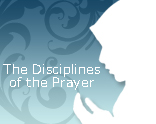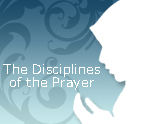O you traveler to Allah, know that by turning the outer side of your appearance
away from the dispersed points of the world of nature, and turning it to a
single point, you have claimed two of the inborn divine dispositions, which the
hand of the Invisible has hidden in your essential nature [khamira-i dhat], and
Allah, with the hand of Beauty and Majesty, has mixed your nature [tinat] with
them, and you have shown these two inborn states in mundane and visible
displays. And, in order not to be deprived of the light of these two divine
dispositions, you have proven that you have apparently turned away from all
directions, and you solely faced the qiblah, which is the place of the
appearance of Allah's hand and power. The two divine dispositions are, first,
repugnance to imperfection and the imperfect, and, second, loving perfection and
the perfect. These two, of which one is original and autogenic, and the other is
subordinate and a shadow, are of the dispositions which are mixed with the
nature of the family of mankind without exception. They are in the whole human
species disregarding their differences in beliefs, characters, habits,
temperaments, places, traditions, and whether nomads or urbans, uncivilized or
civilized, learned or ignorant, godly or naturalists. In all of these the two
innate dispositions are concocted, even if they themselves do not recognize them
in themselves, and differ in distinguishing perfection and imperfection, and the
perfect and the imperfect. One who is brutal, blood-thirsty and murderer takes
perfection to be in his victory in assaulting the lives and the honors of the He
thinks blood-shedding and homicide are perfection, and he spends his life on
that, while the ambitious who is in quest of rank, position and wealth in this
world thinks that in these he will find perfection, and so, he adores them.
In short, everybody with an objective thinks that objective to be perfection,
and the one who attains to his objective is the perfect; so he loves it and is
repugnant to any other thing. The prophets (AS), the knowers of Allah, and the
people of knowledge have come in order to take the people out of the veil and to
save the light of their inborn dispositions from the darkness of ignorance, and
to teach them the meaning of perfect and perfection. And, after distinguishing
the perfect and perfection, there would remain no need to invite them to attend
to that and neglect the others, for the light of the inborn disposition is, in
itself, the greatest of the divine guidances, present in all the human species.
In this divine mixture [ma'jun], that is, the salat, which is the ascension to
the Proximity of Allah, facing the qiblah and the central point, and giving up
and turning away from other diverse directions, denote the wakefulness of the
innate disposition, and the emission of the light of the disposition out of the
veils. This is a reality for the perfect ones and the people of knowledge. As to
us, the people of the veil, the relevant discipline is to tell the heart that in
the entire House of Realization [dar-i tahaqquq] there is no perfection nor
perfect except His Sanctified Essence, the Absolute Perfect, for that Sanctified
Essence is a Perfection with no imperfection, a Beauty with no defect, an
Actuality with no blemish of potentiality, a Goodness mixed with no evil and a
Light with no blemish of darkness. In the entire House of Realization whatever
there are of perfection, beauty, goodness, dignity, greatness, illumination,
actuality and happiness, are emissions of the Light of the Beauty of that Sacred
Essence, and nobody has any share of personal perfection of that Sacred Essence,
and no being has beauty, perfection, light and magnificence except through His
Beauty, Perfection, Light and Magnificence. In short, the splendor of the light
of His Sacred Beauty illuminates the world, bestowing upon it life, knowledge
and power, as otherwise, the whole House of Realization would have been in
complete darkness of non-being, in the latency of non-existence and in the
inside of nullity. The one whose heart is lighted with the light of knowledge,
sees everything, other than the light of the Beauty of the Beautiful, as void,
worthless and non-existing, eternally and for ever. It is narrated that when the
Messenger of Allah (SA) heard this poem of Labid;
'Oh, indeed, everything, save Allah, is batil And every pleasure [na'im] is,
inevitably, transient!', he said: "This is the truest poetry said by the Arabs."1
Having informed your heart about the falsity of all that is in the House of
Realization, and about the perfection of the Sacred Essence, there would be no
need for the heart to premeditate for turning to the real qiblah and loving the
Beauty of the Absolute Beautiful, and detesting the entire House of Realization,
except the manifestation of the Sacred Essence, as in fact, the very divine
disposition in man naturally invites to that, and:
﴾I have turned my face toward Him Who originated the heavens and the
earth,﴿2
becomes the motto of man's soul, heart and situation, and
﴾I do not love the setting ones,﴿3
becomes his natural motto.
Thus, O poor, know that the world, excepting Allah, is transient, perishing,
vanishing and batil. None of the beings has anything by itself, and none of them
in itself, has any beauty, glory, light or splendor. Beauty and splendor
exclusively belong to the Essence of Allah. As the Sacred Essence is unique in
Divinity and in being Necessary Existent, He is also unique in Beauty, Glory,
Perfection, and particularly He is unique in existence, while the humility of
essential non-existence ['adam-i dhati] and nullity are engraved on the
foreheads of the others. So, turn the heart, which is the center of the light on
the divine innate disposition, away from the different aspects of falsities,
nullities and shortcomings, and direct it toward the Center of Beauty and
Perfection, and in your pure conscience let the motto of your disposition be
what the Gnostic of Shiraz says:
Our conscience accommodates none but the Beloved,
Give up both worlds to the foe, suffices us to have the Beloved.
Connection:
Imam al-Sadiq (A.S) is quoted to have said: "When you face the qiblah, despair
of the world and of what is in it, and of the creatures and of what they are
busy with. Empty your heart of whatever takes your attention from Allah, the
Exalted. Discern with your heart the Greatness of Allah, the Glorified. Remember
your standing before Him on the day when"
﴾Every soul shall become acquainted with what it sent before, and they
shall be brought back to Allah, their true Guardian,﴿4
and stand on the foot of fear and hope."5
These noble instructions are for the like of us, the veiled, who are unable to
keep the states of our hearts constant, join between Oneness and multiplicity
and attend to both Allah and creation. Such being the case, we should despair of
the world and what is in it when we turn to Allah and face the qiblah. We should
also sever our greed from the creatures and empty our heart and spirit of
whatever takes our attention from Allah, so as to be worthy of His Presence and
let a manifestation of majesty appear in the secret of our spirit. And when we
gain the light of majesty according to our capacity, we are to remember our
return to Allah and our standing in His Sacred Presence on the day when
﴾Every soul shall be acquainted with what it sent before and they
shall be brought back to Allah, their true Guardian﴿
(Surah Yunus:30), and they shall cross out all the whims of the soul and the
false deities.
Thus, in the Presence of such a Great One, of whose manifestations of act is
this House of Realization, some one like you and a poor man like me, must walk
and stand on the foot of hesitation, fear and hope. When we see our weakness,
laziness, helplessness, poverty and humility, and discern Allah's Greatness,
Haughtiness, Majesty and Might, we are to feel fear and awe from the danger of
eminence; and when we understand His unlimited mercy, kindness, leniency and
boundless generosities, we are to be hopeful.
* Book: Adabus Salat "The Disciplines of the Prayer". By: Imam
Khomeini.
1- Ilmul Yaqin, vol.
1, p. 106.
2- Surah al-An'am: 79.
3- Surah al-An'am: 76.
4- Surah Yunus: 30.
5- Misbahush Shari'ah, ch. 13, on "Opening the salat", Mustadrakul Wasa'il,
"Book of as-Salat", chs. on "The Acts of the salat", ch. 2, hadith 9.



![On Some Disciplines Concerning Permissibility [ibahah] of Place](https://english.almaaref.org/uploaded/essaysimages/big/lvl120130322030419.jpg)














